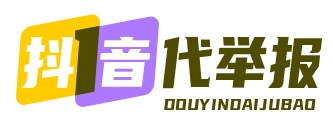TikTok Reporting Service Teams: Ensuring Platform Integrity
Understanding TikTok Reporting Service Teams
TikTok reporting service teams operate with the primary objective of identifying and reporting content that violates the platform's community guidelines. These teams, often organized online, offer their reporting services, sometimes for a fee, to users seeking to remove harmful or inappropriate content from TikTok. Their activities range from addressing copyright infringement and privacy violations to tackling harassment and other forms of prohibited content.
The Operations Behind TikTok Reporting Services
The operations of these service teams are relatively straightforward yet strategic. They gather reports from individuals or entities who believe certain content on TikTok violates community guidelines. Using multiple accounts, they then collectively report the flagged content to TikTok's moderation team for review. This mass-reporting strategy can increase the likelihood of the content being reviewed and potentially removed faster than if reported by a single user.
However, this method raises questions about the potential for abuse. There are concerns that these services could be used not just to target genuinely harmful content but also to suppress free speech or unfairly target competitors and dissenting voices on the platform.
The Ethical and Legal Implications
The rise of TikTok reporting service teams brings to light ethical and legal considerations. On one hand, these services can play a crucial role in keeping the platform safe and clean by removing genuinely harmful content quickly. On the other hand, the misuse of these services can lead to censorship and the unwarranted removal of content, infringing on freedom of expression and potentially hurting creators' livelihoods.
From a legal standpoint, these teams operate in a gray area. While reporting content that violates guidelines is a right of all users, organizing mass reporting can border on brigading, which might violate TikTok's terms of service and could lead to legal challenges.
Final Thoughts
TikTok reporting service teams exemplify the complex challenges facing digital platforms today. While their intent to maintain a safe and respectful community is commendable, their existence underscores the need for platforms to continue enhancing their moderation systems. This effort can help ensure that content removal processes are not only efficient but also fair and just, safeguarding the digital ecosystem's health without compromising the principles of free expression.
In conclusion, the phenomenon of TikTok reporting service teams highlights the ongoing battle between maintaining community integrity and ensuring freedom of expression. As digital platforms evolve, so too must the strategies to moderate content, always striving for a balance that respects user rights while fostering a safe online environment.






